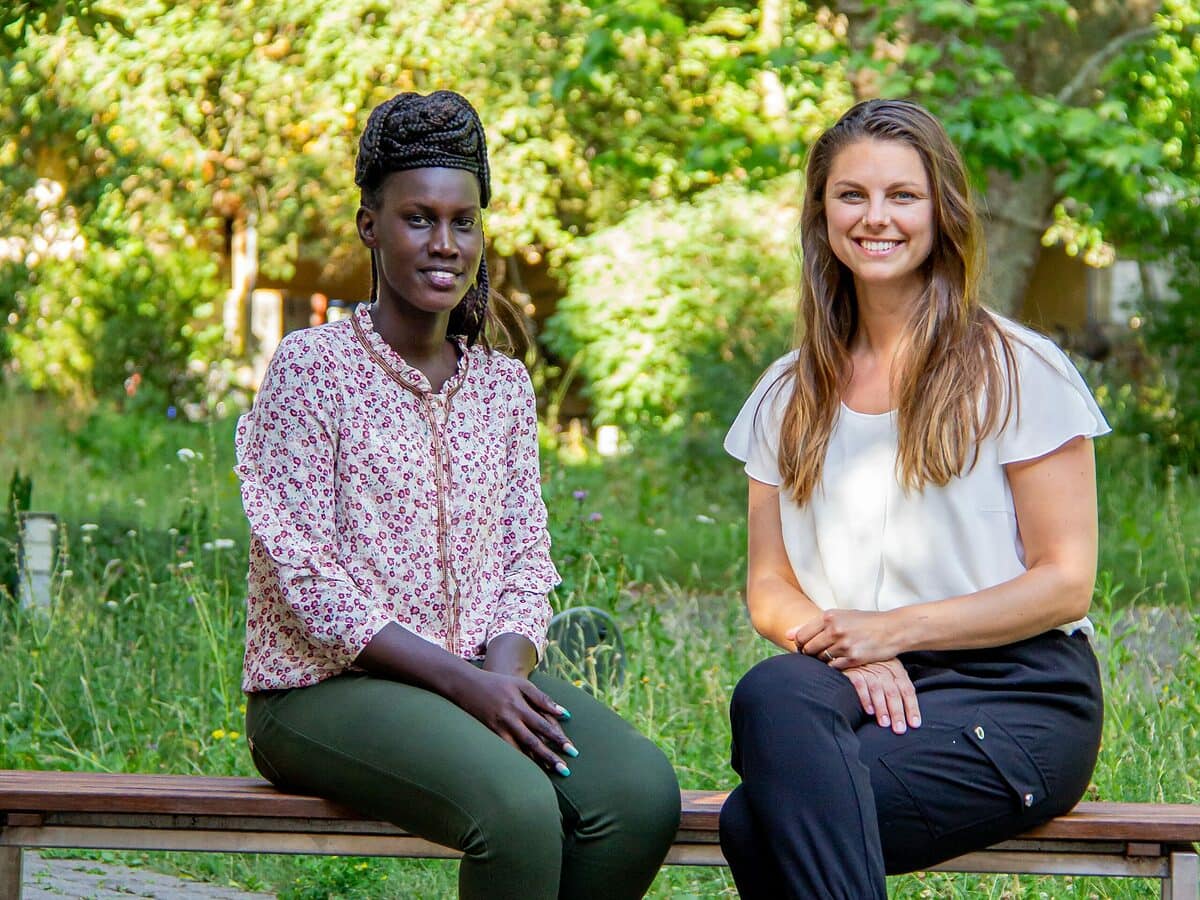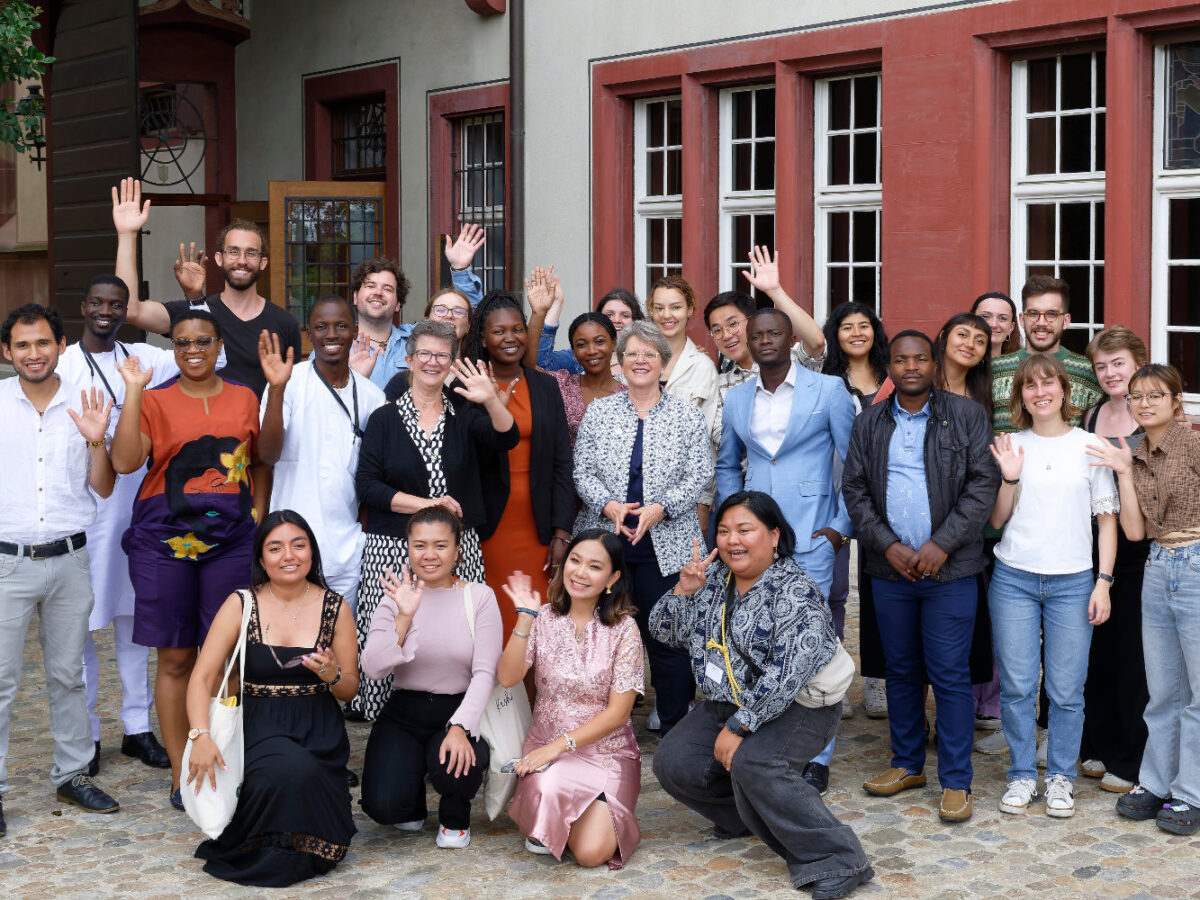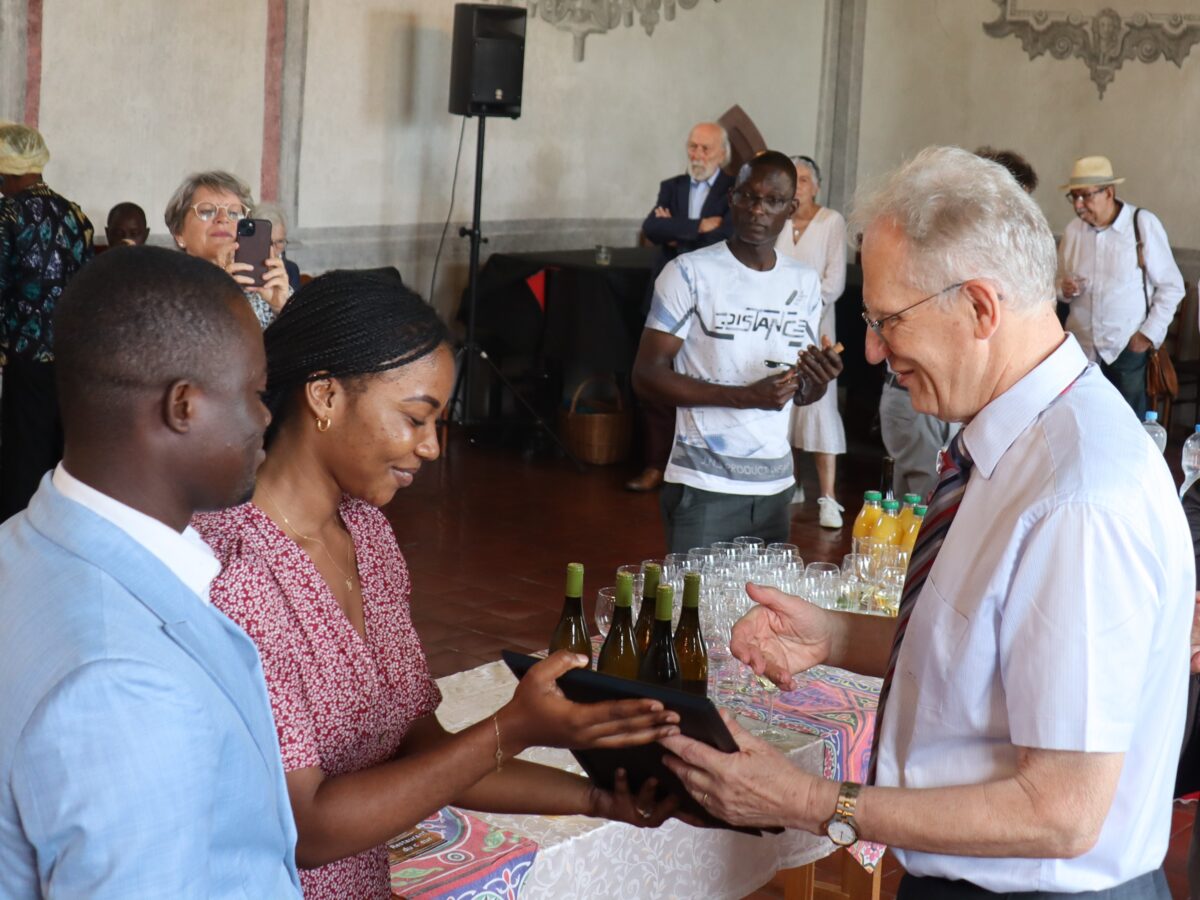What is the difference between the everyday life of a midwife in South Sudan and in Switzerland? And where are the similarities? A conversation.
Nyanagun Tut Koul is 25 years old. She was born in Sudan. The family fled to Uganda in 2006. In 2016, she began training as a midwife at the school of PRDA (local partner of Mission 21). Today, Nyanagun lives in Jonglei state in northeastern South Sudan. For the past three years, she has been working there as a midwife for the organization Doctors Without Borders. She participates in Mission 21's Youth Ambassador Program and was in Switzerland in June 2022 as part of this program.
Babice Schlumpf-van Waardenburg is 28 years old. She was born in the Netherlands, spent her childhood in Davos and now lives in Basel. She studied psychology in Basel and is in the second year of her bachelor's degree program to become a midwife. In addition, she works part-time in the marketing and communication department of Mission 21.
During Nyanagun's visit to Basel, they exchanged views on the differences and similarities of their everyday working lives in South Sudan and in Schwiez.
Nyanagun, Babice, what motivates you to work as a midwife?
Nayanagun: I want to help other people - and as a midwife I can do just that: Help women in South Sudan.
BabiceIt's similar for me: I want to support women in what is probably one of the most important moments of their lives, in an experience that they have never had before, at least as first-time mothers.
You work in very different contexts. In South Sudan, according to Unicef, 1150 out of every 100,000 women die in connection with pregnancy and childbirth. In Switzerland, the figure is five. In South Sudan, only a quarter of all births are attended by a midwife.
NyanagunWe have few midwives, but more are coming. Also thanks to the school that Mission 21 supports. Since our cohort graduated, many positions have been filled in the hospital where I work. We are helping to reduce maternal and child mortality in South Sudan.
What are the biggest challenges?
Nyanagun: The infrastructure. We don't have an operating room for cesarean deliveries in the hospital, the women have to be transferred by plane. In the rainy season, this is sometimes difficult because the runway is flooded. But my employer tries very hard to help all the women. Babice: It must be extremely difficult to work like this... We are very well equipped. In addition to medical requirements, the main challenge in the hospital is to accompany the women in a way that is right for them - in other words, to give them the time and rest they need in the hospital environment.
How do your working days work?
Babice: Midwives in Swiss hospitals usually work three shifts of eight hours each. We only work on one ward, i.e. exclusively in the delivery room or the postpartum ward. In the hospital in Rheinfelden, where I work, there are 40 births per month on average.
NyanagunThe hospital where I work is the largest in the region. We are five midwives. Sometimes we attend 90 births per month. We do all the tasks from prenatal care to obstetrics and postpartum care. The morning shift lasts six hours, the night shift 12 hours.
Why is the night shift so long?
Nayanagun: For security reasons. The security situation in South Sudan is very bad now after the war, we can't make our way to work at night.
What is the pre- and aftercare like?
NyanagunSome days we are out in the villages to inform the women to come to the hospital to give birth, so that we can help in case of complications. Some of them have to walk twelve hours to get there. After the birth, they stay for a maximum of two days.
BabiceIn Switzerland, mothers stay in hospital for up to five days after giving birth. After that, they are entitled to 16 home visits by a midwife, which are billed to the health insurance fund. Nyanagun: We don't have that. But the hospital is open to everyone, so obstetrics is free.
What about deaths in the hospital?
BabiceFortunately, I have not had to experience this so far.
Nyanagun: Most complications occur in unattended home births. That's why it's so important for women to come to the hospital. The worst moment in my professional life was a case where we had to sacrifice the life of a baby to save the mother. She was only 16 years old.
Nyanagun, can you tell us about your training at the School of Midwifery?
NyanagunI came to the training through an appeal in the church, I was living with my family in Uganda at the time. The school was in exile in Kenya because of the war. When I arrived, I was shocked. The area was extremely hot and dry, a challenging environment. But the school was very good. The teachers were well trained and motivated us to continue despite all the problems. After one year, we had to change location because of conflicts and from then on we studied in Kakuma refugee camp. That was also a tough experience. But we made it, we successfully completed the training and are now making an important contribution in South Sudan!
What has been the best experience so far?
NyanagunI am always happy when a birth goes well. I was especially relieved once with a very young mother, where the initial situation was not good, but in the end everything went smoothly.
BabiceFor me, the most touching moment so far was the first birth I was allowed to attend. It was not an easy birth, a suction cup was used. But I was very impressed by how the mother managed everything and how her partner gave her strength.
Interview: Miriam Glass, Mission 21






